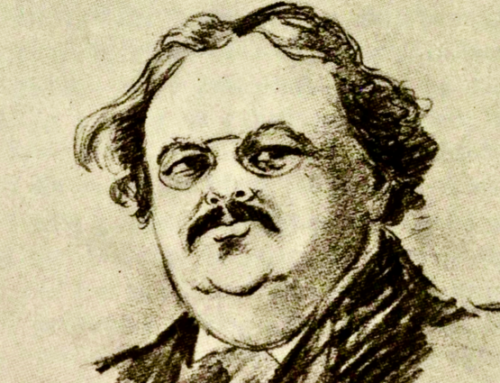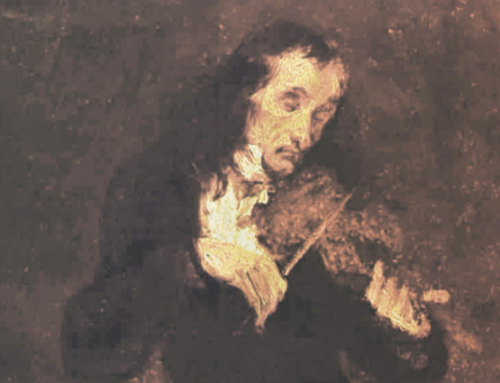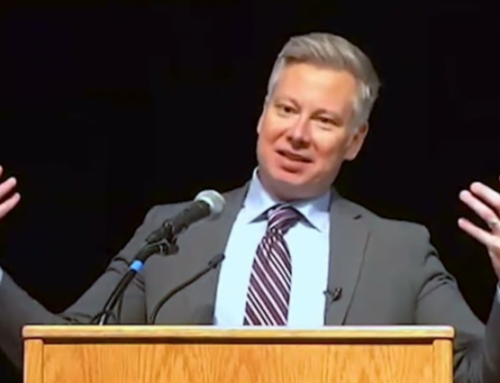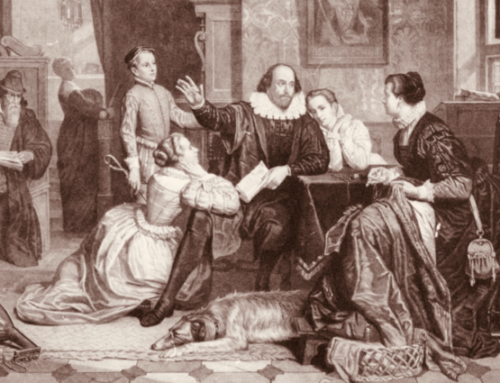The America we saw in our long days of travel remains beautiful, mile after mile—a paragon of nations. It still demands a noble music. But it is hard not to think of what Benjamin Franklin famously replied to the lady who asked him, after the Constitutional Convention, whether we would have a monarchy or a republic: “A republic,” he replied, “if you can keep it.” It will be hard work to keep it, but we have a chance, at least, under God’s Providence, to recover the Constitution.
 Every year, the new freshmen arrive at Wyoming Catholic College a month ahead of regular classes, and I am always impressed with the distances they have come to be here. This year’s students traveled from 25 different states and four foreign countries (Belize, Canada, Ireland, and Ukraine). Already, even before their 21-day trip in the mountains, they have done something heroic and counter-cultural by leaving behind the known world of home and undertaking an adventure of discovery. This year in particular—with inflation spiraling upward, with a pervasive sense of the social fabric coming undone, with the government shamelessly using coercion to impose wokeness, override religious conscience, and liberate us from the habits of liberty—I think of Yeats’s “Lapis Lazuli,” his great poem on the rise and fall of civilizations. Midway through his meditation, Yeats imagines great migrations like those we have seen in our own time by people trying to escape oppression: “On their own feet they came, or on shipboard,/Camel-back, horse-back, ass-back, mule-back.”
Every year, the new freshmen arrive at Wyoming Catholic College a month ahead of regular classes, and I am always impressed with the distances they have come to be here. This year’s students traveled from 25 different states and four foreign countries (Belize, Canada, Ireland, and Ukraine). Already, even before their 21-day trip in the mountains, they have done something heroic and counter-cultural by leaving behind the known world of home and undertaking an adventure of discovery. This year in particular—with inflation spiraling upward, with a pervasive sense of the social fabric coming undone, with the government shamelessly using coercion to impose wokeness, override religious conscience, and liberate us from the habits of liberty—I think of Yeats’s “Lapis Lazuli,” his great poem on the rise and fall of civilizations. Midway through his meditation, Yeats imagines great migrations like those we have seen in our own time by people trying to escape oppression: “On their own feet they came, or on shipboard,/Camel-back, horse-back, ass-back, mule-back.”
Our students arrive on a smaller scale, of course, and by other means—very few on shipboard or camel-back, to be honest—but there is a strong desire in them and in the parents who bring them for an education that gives them hope. Some, obviously, have come much farther than others, but all of them want to be in this place where they do not have to kowtow to codified petulance or quibble over preferred pronouns or sink into a virtual world of screens, subject to algorithms of subtle manipulation and the evil pressures of social media.
On Tuesday night at a reception for the parents of our freshmen, I heard stories about the steady rise of morally destructive government pressure in this country. One man from a northwestern state told me it did not feel like he lived in America anymore. But I also heard other stories of grace and transformation that brought tears to the eyes of those doing the telling and those who heard them. Parents were happy to find themselves among the likeminded. Candor reigned. One man said it was great to be in a place where having seven children was not unusual—in fact, seven might be below average. One mother told me what an extraordinary series of events brought her son to Wyoming Catholic College. Gratitude abounded, as did cautionary wisdom. A foster mother who faces daily trials with the imposition of the woke agenda had sound advice about how to confront coercion, including the redefinition of words and the undermining of the moral order: “We have to tell the truth but act with charity.”
That was also the advice of the impressive speakers my wife and I heard at a conference in Georgia last week—part of a road trip that began with a wedding in Wisconsin and took us through a great deal of America (4,200 miles worth) over the past two weeks. One of those interviewed was Scott Stewart, the Solicitor General of Mississippi, who successfully argued the Dobbs case before the Supreme Court and helped overturn Roe v. Wade. He powerfully emphasized two things: the “magic of boldness” that comes from prayer—the boldness that led him to challenge Roe itself against the advice of all the experts—and the necessity of calm, rational argument based on the Constitution. Ryan Anderson, President of the Ethics and Public Policy Center, and Alexandra DeSanctis, a writer for National Review, made a similar point, speaking about the recent book they had co-authored (Tearing Us Apart: How Abortion Harms Everything and Solves Nothing). Because the next phase of the struggle will involve persuasion on the state and local levels, opponents of abortion need to embody the virtues, not resort to passion and violence.
The current Supreme Court has strongly favored free religious expression in the cases that have come before it, part of its originalism in interpreting the Constitution, with the effect of returning responsibility to the people in the 50 particular states. This responsibility might be bracing but it might also lead us to reflect on whether we can, in fact, be one nation. The feasibility of Union has been tested before. Toward the end of our time in Georgia, I visited the “Dead Angle” at Cheatham Hill in the Kennesaw Mountain National Battlefield Park. In this spot, Union soldiers under Sherman’s orders attacked the entrenched Confederate line and died by the hundreds in a withering crossfire. Both sides experienced carnage on a level rarely paralleled even in that bloody war. It’s a sobering reminder.
The wedding we attended in Wisconsin ended, rousingly, with “America the Beautiful”, and then, suddenly, came the thrilling strains of a bagpipe, part of the bride’s proud Scottish heritage. The America we saw in those long days of travel remains beautiful, mile after mile—a paragon of nations. It still demands a noble music. But it is hard not to think of what Benjamin Franklin famously replied to the lady who asked him, after the Constitutional Convention, whether we would have a monarchy or a republic: “A republic,” he replied, “if you can keep it.” It will be hard work to keep it, but we have a chance, at least, under God’s Providence, to recover the Constitution. The graduates of Wyoming Catholic College will be there to help with reason and faith and powers of persuasion.
Republished with gracious permission from Wyoming Catholic College’s weekly newsletter.
The Imaginative Conservative applies the principle of appreciation to the discussion of culture and politics as we approach dialogue with magnanimity rather than with mere civility. Will you help us remain a refreshing oasis in the increasingly contentious arena of modern discourse? Please consider donating now.
The featured image is courtesy of Pixabay.







Wonderful to know and appreciate, through your articles, that there are kindred spirits out there throughout the country.